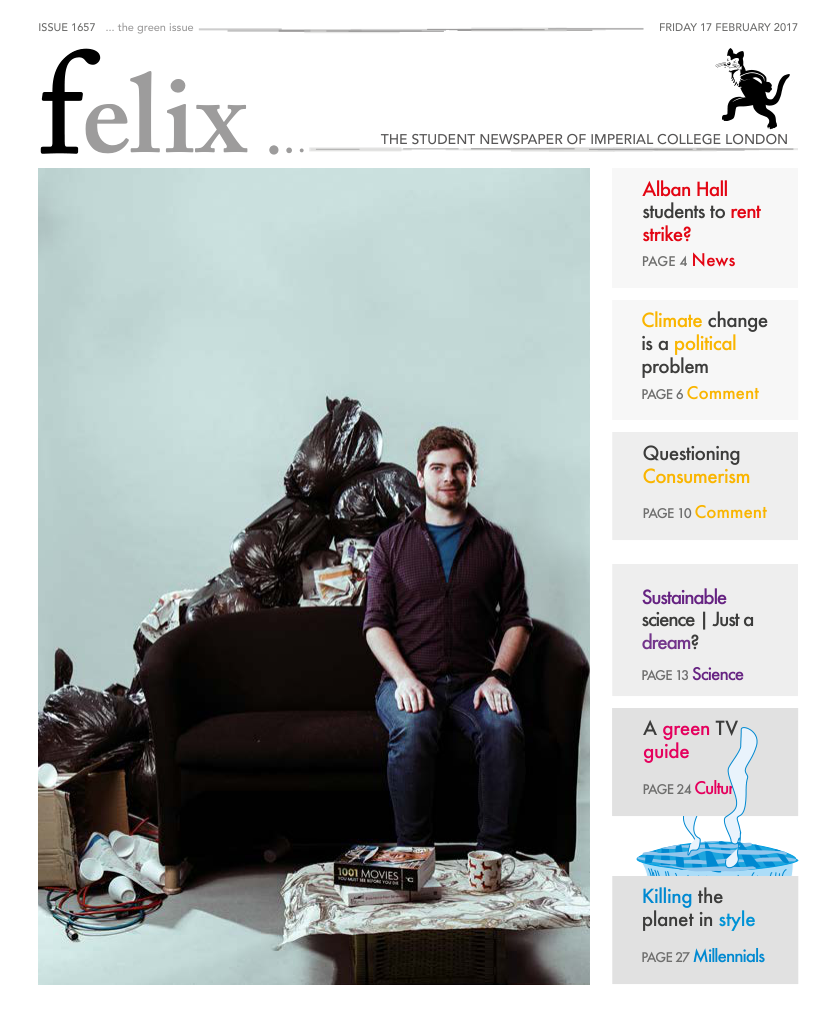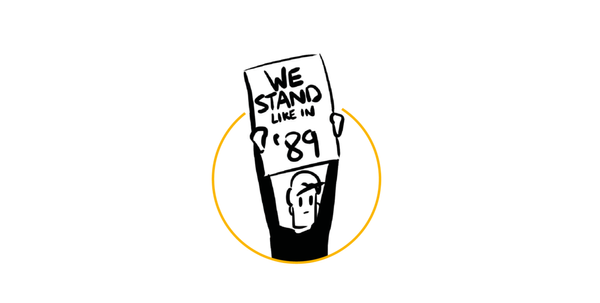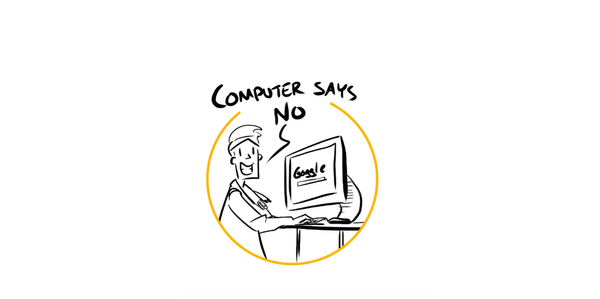Query your consumerism
Valerie Wischott thinks we should all hold ourselves accountable for our unsustainable lifestyles

I buy these flip-flops from H&M for every summer – after one year, they’re broken. But it doesn’t matter, they’re only €7.” “I already booked my journey back home for Christmas holidays – got a flight for €10!” All of you have probably said something along these lines at some point. These quotes reflect the attitude that dominates today’s consumer behaviour. We are used to the permanent availability of all our desired products, from food to fashion to flights, and we can acquire them at low prices. At the same time, the world is worrying about climate change, desertification and pollution, and thus establishes goals and agreements in order to protect the environment. A common sense view on the causality chain of the environmental destruction reveals that our consumer behaviour is at the top of this chain and represents an essential factor with regard to the changes of the environment. Everyone’s daily life contains consumption decisions which have a direct or indirect influence on the environment. While some things seem obvious, others have to be investigated more carefully in order to trace back their influence. In doing so, the whole life cycle of a product or a service has to be taken into account.
To start off, what plays a major role in all our lives? Food! Our first association with the environment might be the consumption of animal products, which has come to the fore due to the currently increasing popularity of vegetarian/vegan lifestyles. Animals need area to live. They also need food, which in turn needs area and water to grow. The need for area – which is particularly high for cattle ranching – results in the deforestation of rainforests. However, the assumed sustainable lifestyle which excludes the consumption of animal products can have its drawbacks: The increasing demand for the avocado, with its vitamins and unsaturated fatty acids being one of the most popular 'superfoods', is causing a loss of forest and needs huge amounts of water (the cultivation of one kilogram of avocados needs more than five times as much water as one of tomatoes).
Besides food, the mobile phone has become the centre of our lives. The rapid development of new technologies leads to an ever-decreasing lifespan of our electronical devices: we replace products because it is difficult to repair them or to benefit from technological innovations. The problem is that smartphones contain up to 60 different chemical elements (30 of which are metals) whose extraction and subsequent disposal cause contamination of soil, water and air. Speaking of contamination leads us to the consumption of fashion, which has transformed into 'fast fashion' during recent years, with vast quantities of clothes being produced at an ever increasing frequency (clothing production doubled from 2000 to 2014). To point out just one of the issues with this, the immense need for water in cotton production resulted in the reduction in area and water level of the Aral Sea by 50% from 1950/60 to 2007. Issues connected to that include the contamination of groundwater and agricultural products due to sand storms.
Another aspect of our lives that has come to feel perfectly natural is travelling. How long ago was your last long-distance journey? For me, its's less than a year. One problem with tourism is the transportation to the destination: the aeroplane is the biggest transportation polluter, releasing the most CO2 emissions per passenger kilometre and being used for the longest distances. An additional aspect is the on-site influence of tourism, including land degradation and the overuse of resources like land, fresh water, and energy.
These examples show how we can be confronted with consumption decisions every day. The way we consume things as a matter of course can be challenged by tracing back the upstream and downstream impacts of our consumption decisions both on the environment and living things. For me, it is not about choosing a radical lifestyle and committing myself to the abstinence of all kinds of enjoyment. The human being strives to hedonism, social affiliation and self-actualisation and the consumption of the discussed products and services makes a contribution to satisfying these needs. For me, it is about starting to reflect our manner of consuming things and to find a balance between uncontrolled consumption and forgoing. There are numerous and very easy approaches to starting a more conscious and sustainable consumption. If you haven’t had a coffee yet today, why not use a reusable cup instead of throwing away the paper cups each time? Why not take the train from time to time instead of the plane for short distances? Why not trying to repair the hole in your jeans instead of throwing it away or even look for a more durable garment next time?









